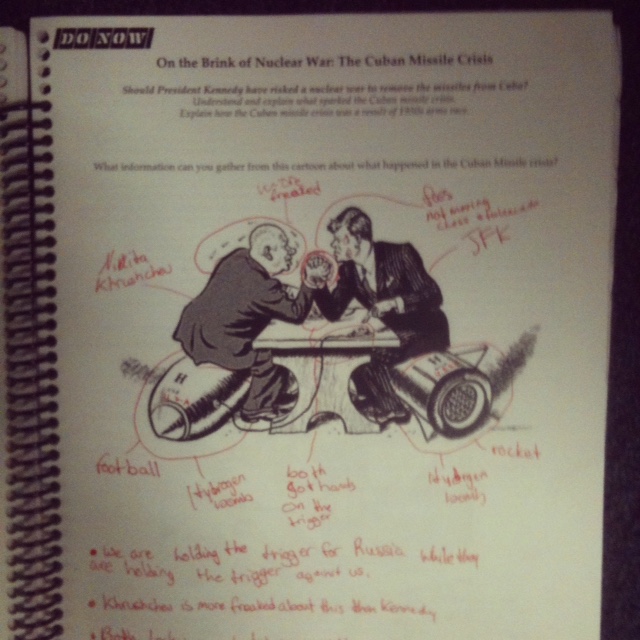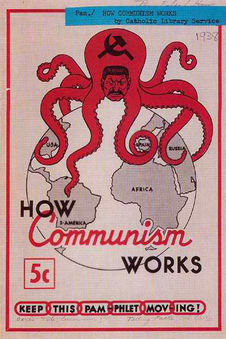| As the Program Director and curriculum developer for a new Gilder-Lehrman Saturday Honors Academy, I was tasked with creating a primary source driven activity for students centered on Cold War relations with Russia. At this Saturday Academy, high school juniors will hear lectures from college professors about American foreign policy relations with Russia, China, and the Middle East since World War II. After their first lecture from Professor Jonathan Bone, the students were asked to take the role of advisors and suggest a course of action to President Kennedy with regards to the Cuban Missile Crisis. |
What follows is the lesson plan and sources from that experience. My hope is that this lesson is adaptable enough that students and teachers will find it to be a useful lesson and activity in investigating the circumstances and consequences of action surrounding the tense, two-week standoff known as the Cuban Missile Crisis.
You can use the Digital History tab at the top of the page to navigate the activity or follow below:
You can jump to the lesson plan here.
The primary source documents can be found here.
The student handouts can be found here.
You can use the Digital History tab at the top of the page to navigate the activity or follow below:
You can jump to the lesson plan here.
The primary source documents can be found here.
The student handouts can be found here.




 RSS Feed
RSS Feed

